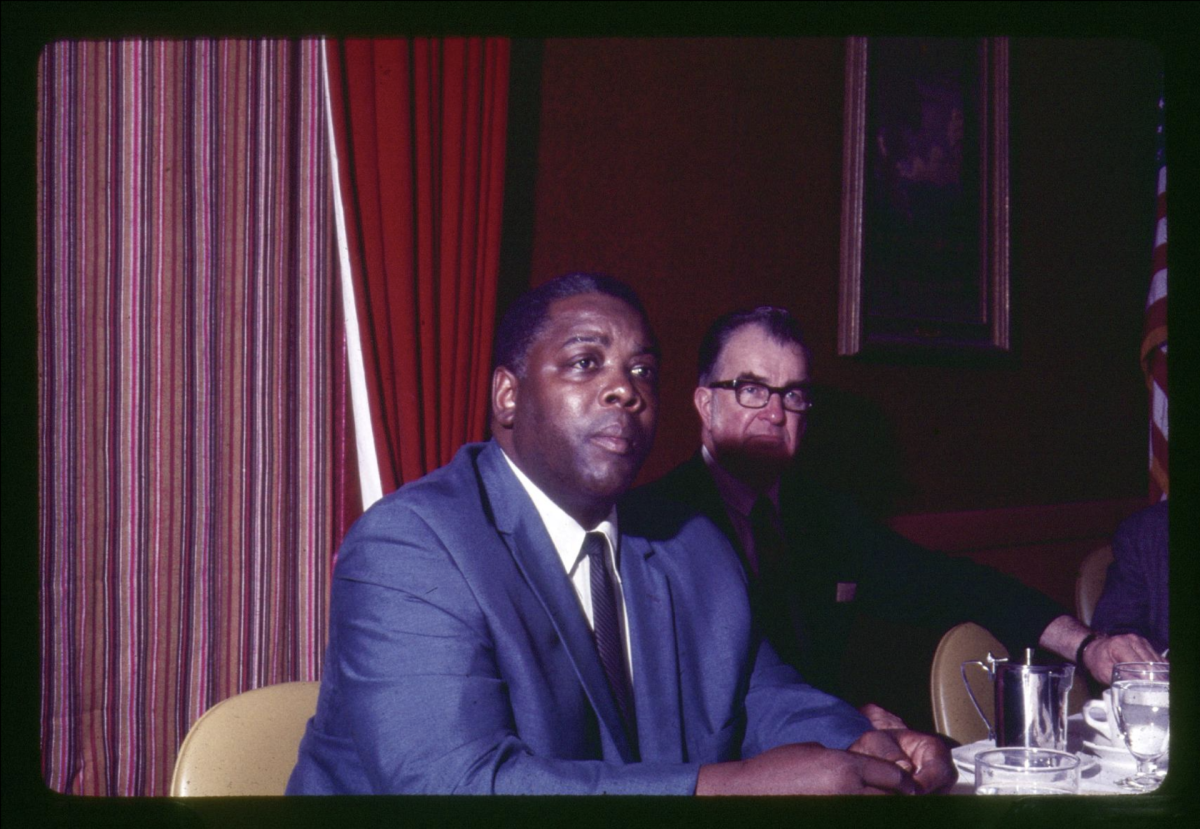Celebrating 50 years of service and impact, the Lonnie B. Harris Black Cultural Center will host a reception on April 24, welcoming Oregon State University students, alumni and community members to commemorate its legacy.
This walkthrough event from 2 p.m. to 4 p.m. will be celebrated with food, a photo booth, a wall adorned with historical photos of the BCC throughout the decades and engagement activities for everyone to participate in.
As a resource rooted in student advocacy, success and creating what the mission statement described as an atmosphere meant to “enrich the quality of campus life for African and African-American students,” the BCC has come a long way since its 1975 inception.
Formally founded in response to student activism combating racism on campus, this center was built as a place for the Black Student Union to meet.
In 1975, the center was named after OSU’s first Educational Opportunities Program Director, Lonnie B. Harris, who was described as a role model for many students at the time.
Current Director Jamar Bean reflected on the journey of the BCC as he focused on the way this center currently aims to uplift Black students and their mental health needs.
As a former student on the OSU campus, Bean highlighted the importance of connection and shared experience for Black students as he related to the current students coming into OSU who feel isolated not only by the community around them but the country as a whole.
“I didn’t realize that I needed to find my community,” Bean said, a sentiment which he placed as one of the top priorities for cultural centers such as the BCC.
The BCC also uplifts students by creating leadership opportunities with the events and resources the center provides. Bean said that as director, his role is primarily to guide students in leadership positions. However, “the students put everything into motion.”
The events in question include a plethora of cultural celebrations throughout each year. The first one is the Black Excellence Award Gala. This ceremonial event is what Bean described as “a good time for us to get together and celebrate each other.”
Featuring awards for Black students and staff, a get-together in a formal setting like this is meaningful for Bean and the students, alumni and faculty involved. “Oftentimes, Black faculty and staff don’t get the recognition that they deserve,” Bean said.
Creating a voice for students and the greater OSU community can also be seen in the representation of historical literacy and understanding. For this reason, the BCC hosts many of the Black History Month events on campus, as well as the Juneteenth celebration.
As the only Juneteenth event on campus, Bean recognized this celebration as one of the center’s biggest. Open to everyone, this event doubles as a celebration of the year where the focus is to eat good food, learn about the history behind Juneteenth and ultimately echo Bean’s sentiment of bringing people together.
These programs, along with the work of student leaders — who Bean called the “engine” of the center — are vital to the BCC’s daily operations and its long-term impact.
Looking towards the future, Bean’s vision is clear: “I hope the center continues to grow and evolve. I want it to be more centralized on campus and serve students in even more unique ways. Right now, cultural centers like this are under attack. We need to protect and sustain them.”
A testament to its beginning mission, the BCC remains rooted in advocacy, connection and cultural empowerment.
From its founding in response to student activism to its present-day role as a hub for leadership, education and belonging, the BCC continues to evolve with the needs of its community.
The 50th anniversary celebration is more than a milestone, it’s a reminder of how the center began, the challenges it has overcome and the community it continues to serve.




















































































![Newspaper clipping from February 25, 1970 in the Daily Barometer showing an article written by Bob Allen, past Barometer Editor. This article was written to spotlight both the student body’s lack of participation with student government at the time in conjunction with their class representatives response. [It’s important to note ASOSU was not structured identically to today’s standards, likely having a president on behalf of each class work together as one entity as opposed to one president representing all classes.]](https://dailybaro.orangemedianetwork.com/wp-content/uploads/2025/03/Screenshot-2025-03-12-1.00.42-PM-e1741811160853.png)


























